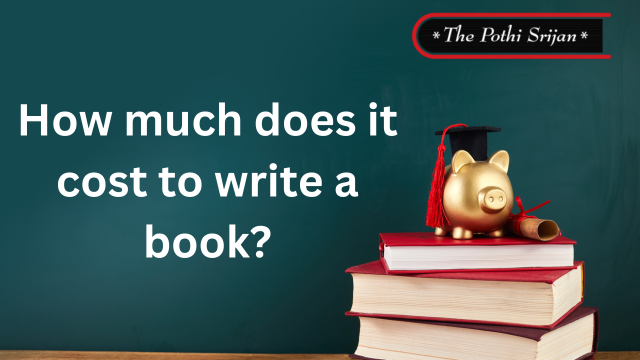Over the years, many aspiring writers have wondered about the costs involved in writing a book. From the initial idea to the final draft, there are several expenses to consider along the way. Here is a comprehensive guide on how much it can cost to write a book:
1. Research: The first step in writing a book often involves research. Whether it’s for a novel or a non-fiction book, research materials such as books, articles, and interviews can incur expenses. The cost of research varies depending on the subject matter and the extent of information required.
2. Writing tools: Investing in a good writing software or tools can streamline the writing process. There are many options available, from free software like Google Docs to paid ones like Microsoft Word or Scrivener. Prices can range from free to a one-time purchase fee.
3. Editing: Once the manuscript is complete, hiring a professional editor is crucial. An editor helps with grammar, structure, and overall readability of the book. Editing services can cost anywhere from a few hundred to a few thousand dollars, depending on the length and complexity of the book.
4. Cover design: A book cover design plays a significant role in attracting readers. Hiring a professional book cover designer can ensure a visually appealing cover that stands out on shelves or online. The cost for cover design services can range from a hundred to several hundred dollars.
5. Publishing: There are two main options for publishing a book: traditional publishing or self-publishing. Traditional publishing involves finding a literary agent and a publishing house, which typically does not require upfront costs but can result in lower royalties. On the other hand, self-publishing through platforms like Amazon Kindle Direct Publishing or IngramSpark requires authors to cover publishing costs upfront, such as formatting, printing, and distribution.
6. Marketing: Promoting a book is vital to reach a wider audience. Marketing costs can include book launch events, social media advertising, book reviews, and promotional materials. Authors should budget for marketing expenses to generate buzz and increase book sales.
7. Miscellaneous expenses: Throughout the writing process, there may be additional costs such as ISBN registration, copyright fees, author website development, and author copies for giveaways or events. These miscellaneous expenses should be factored into the overall budget.
It’s important for aspiring authors to consider all these costs when planning to write a book. While the expenses can vary depending on the scope and nature of the project, having a clear budget in mind can help manage finances effectively. Writing a book is a rewarding endeavor, and understanding the costs involved can set realistic expectations for the journey ahead.

